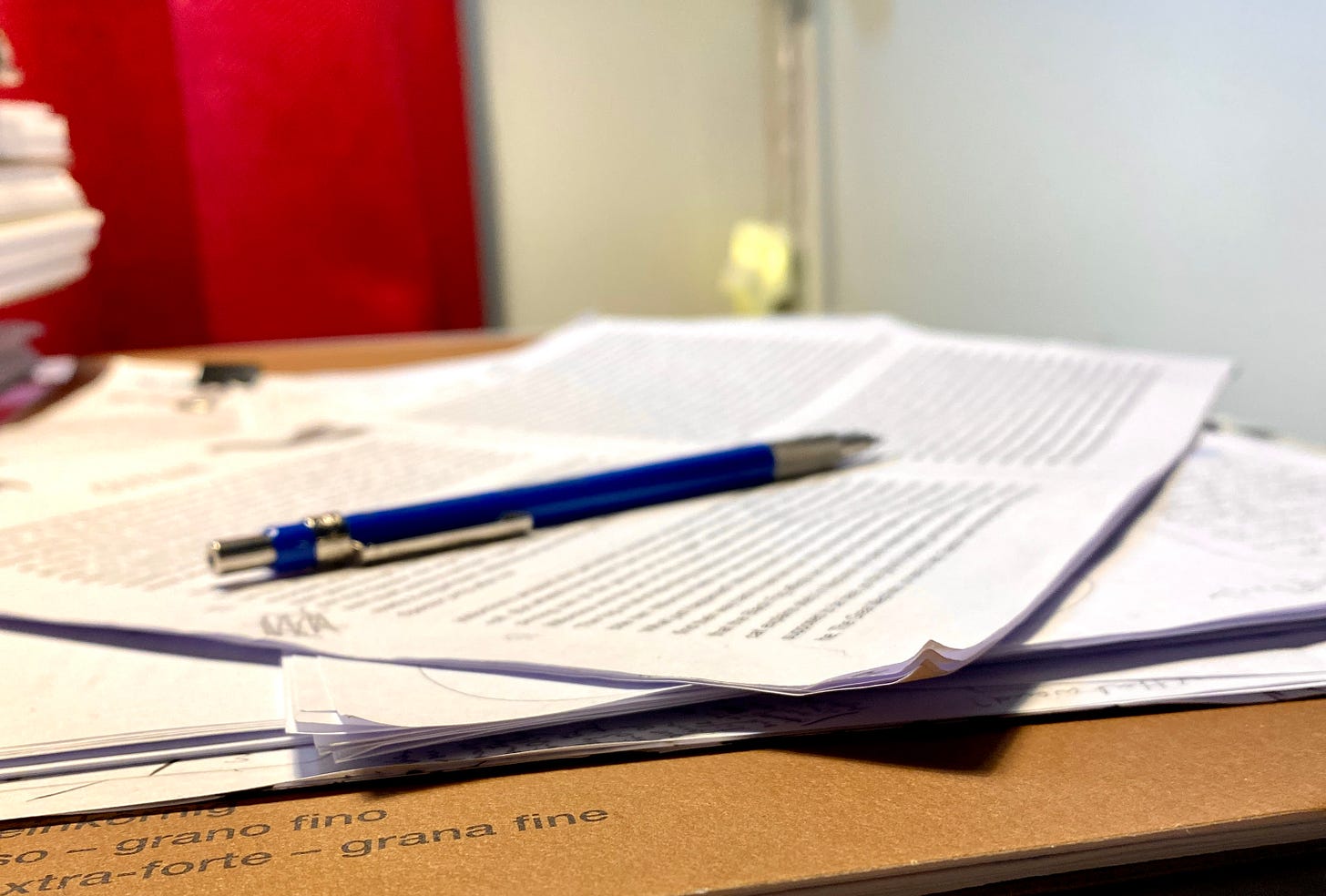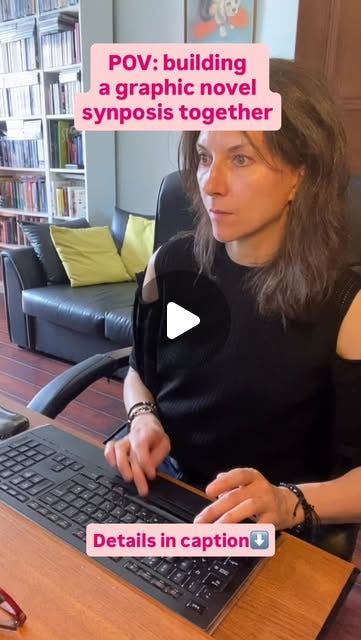10 ways to make your synopsis un-boring
plus bonus 2 reasons why synopses are essential
We’ve been in a bit of a frenzy of meeting deadlines for the art for Wilomina Book 1 but are also already writing the synopsis for Book 2. Which gave us the idea of making this newsletter about synopses.
The first time we pitched a graphic novel to a publisher, they turned it down. Much later, we dug out the pitch while tidying up. Reading the synopsis, we soon glazed over. We had never written a synopsis before because we self-published and worked from a script and schematic diagrams and notes. We had our own ways of working but we didn’t really know how to pitch. We just made comics from our hearts as we went along.
Synopses (or outlines) can be boring to read. And they are difficult to write. You just want to write the book and let your imagination run, not write a summary of it. A synopsis is your book reduced to the bare bones of the plot, told matter-of-factly: a bit like a map. It can be anything from 1 page onwards. Ours are 9-12 pages for Wilomina. If it gets boring to read at any point, it needs a rework. Here are 2 reasons why they’re essential:
A synopsis is essential for pitching
When you’re pitching a graphic novel, you’re only pitching the promise of a book, because in most cases the graphic novel hasn’t been made yet. All the editor or agent has to go on is the synopsis and some sample art. So, the synopsis needs to be strong. It’s doing a lot of heavy lifting. Extra tip: a logline is also essential for pitching. That’s your entire story reduced to one sentence. Can you make someone want to read your story from the logline alone? Can you?
A synopsis is an essential part of writing
Even more so for graphic novels and comics, because even drawing layout (the book in sketches) takes a really really long time. And once layout is done, it’s really hard to edit and unpick, as words and pictures are so inherently interlinked. A synopsis allows you to step back and see your whole story at a glance, including story structure and trajectory. It’s like looking at a complex pattern on a carpet: if you’re too close, you can’t see it. You need to step back, to see the big picture, the whole. That way you can assess if scenes need to be changed, moved, added or removed. You can see if the plot works, the character development is satisfying, the scenes have the right emotional feel, and so forth.
Here are 10 ways to make your synopses un-boring:
Keep it as short as you can
Use short sentences
Use active verbs
Stick to facts, emotions and descriptions of settings that are essential to the plot
Always advance the plot
Give your main character agency
Surprise the reader
Edit it at least 3 times
Forget about your synopsis for at least 2 weeks before re-reading it and editing it
Write it with your gut, edit it with your head
With a graphic novel, the synopsis should be one of your starting points, before you make the layout and final art. When we started working on Wilomina we had the general story idea, then we wrote and did the layout for the first chapter to get the feel of it, then we wrote a synopsis, dreaming up the story in our heads and letting it evolve over time (we both do this and discuss our ideas), before writing the rest of the book. It took about 4 months, including back and forth editing with our agent. For Book 2, we’re doing this back and forth editing with our editor at Scholastic. So, there were periods of time when we didn’t work on it or even think about it. But that’s when your brain works subconsciously. And, when you come back to it, you can see things more clearly and even have fresh new ideas.
One more thing: if ideas don’t come, don’t force them. It will most likely end up contrived, and nobody wants to read that (or work on that).
How do you feel about writing synopses and outlines? We’d be interested to hear. Just pop your thoughts in the comments. Thank you!
Bonus: Here’s a short reel we did for Insta about writing synopses.




This is solid advice, J&S; thank you! I don't mind writing them too much but I could always improve on them.